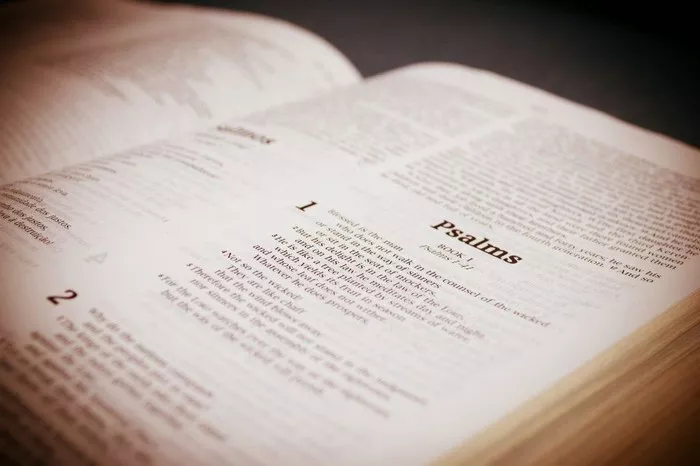In the rich tapestry of Catholic spirituality, novena devotion stands out as a significant and deeply cherished practice. Rooted in centuries of tradition, novenas hold a special place in the hearts of believers seeking divine intercession, guidance, and grace. This article delves into the essence of novena devotion, its historical origins, theological significance, and its enduring relevance in contemporary spiritual life.
Understanding Novena Devotion: A Historical Perspective
The term “novena” finds its origins in the Latin word “novem,” meaning nine. Historically, novenas trace back to the early Church, with roots intertwined with the disciples’ nine-day period of prayer between the Ascension of Christ and the descent of the Holy Spirit at Pentecost. This pivotal event provided the blueprint for the practice of dedicating nine days to fervent prayer and supplication.
Over the centuries, novenas evolved, encompassing various forms of prayer, including litanies, Rosaries, and specific devotions to saints or holy figures. The practice gained momentum during the Middle Ages, with novenas becoming an integral aspect of Catholic piety. Pilgrimages to shrines and churches dedicated to revered saints often involved the recitation of novenas as a means of seeking divine favor or miraculous intervention.
The Theological Foundations of Novena Devotion
At the heart of novena devotion lies a profound theological understanding of prayer, faith, and divine providence. Novenas embody the belief in the communion of saints, wherein the faithful invoke the intercession of heavenly beings – saints, angels, and the Blessed Virgin Mary – to present their petitions before God.
Central to novena theology is the concept of persevering prayer. The nine-day duration symbolizes the perseverance of the disciples in prayer leading up to Pentecost and underscores the importance of persistent supplication in the spiritual journey. Through sustained prayer over a designated period, believers demonstrate their trust in God’s providential care and their willingness to align their will with His divine purposes.
Moreover, novenas serve as a tangible expression of faith and hope. By committing to a period of focused prayer, individuals express their confidence in the efficacy of divine intervention and anticipate God’s response with expectant hearts. This act of faith strengthens the bond between the petitioner and the Divine, fostering a deeper relationship grounded in trust and surrender.
The Varieties of Novena Devotions
The versatility of novena devotion is reflected in the myriad forms it can take, each tailored to specific spiritual needs and intentions. Some of the most common types of novenas include:
1. Novena to the Holy Spirit: Often observed in the days leading up to Pentecost, this novena invokes the guidance and wisdom of the Holy Spirit upon the faithful.
2. Novena to Our Lady of Perpetual Help: Dedicated to the Blessed Virgin Mary under her title of Our Lady of Perpetual Help, this novena seeks Mary’s intercession for various needs, including healing, protection, and guidance.
3. Novena to Saint Jude: Saint Jude Thaddeus, the patron saint of hopeless cases, is invoked in this novena for assistance in desperate situations and seemingly impossible circumstances.
4. Novena to Saint Anthony of Padua: This novena honors Saint Anthony, known as the patron saint of lost items, and is often recited by those seeking help in finding lost or stolen objects.
5. Novena to Saint Therese of Lisieux: Saint Therese, also called the Little Flower, is revered for her simple yet profound spirituality. This novena invokes her intercession for spiritual growth and the fulfillment of heartfelt desires.
These examples represent just a sampling of the diverse range of novena devotions available to believers, each offering a unique avenue for spiritual connection and divine assistance.
The Practice of Novena Devotion in Contemporary Context
In an age marked by rapid technological advancements and societal change, novena devotion remains a steadfast beacon of spiritual solace and guidance for countless individuals worldwide. Despite the challenges of modern life, the practice of dedicating nine days to prayer continues to resonate with believers seeking solace, healing, and divine intervention.
One notable aspect of novena devotion in contemporary context is its adaptation to digital platforms and online communities. With the proliferation of websites, social media groups, and mobile applications dedicated to Catholic spirituality, novena prayers and resources are more accessible than ever before. Virtual novena groups allow participants to join together in prayer regardless of geographical location, fostering a sense of community and solidarity among believers across the globe.
Furthermore, the enduring popularity of novenas underscores their enduring relevance in addressing the spiritual needs of individuals and communities. Whether facing personal challenges, seeking guidance in discernment, or interceding for the needs of others, novenas offer a time-tested means of deepening one’s relationship with God and drawing closer to the communion of saints.
Conclusion
In conclusion, novena devotion stands as a testament to the enduring power of prayer and the rich tapestry of Catholic spirituality. Rooted in centuries of tradition and theological insight, novenas offer believers a profound means of seeking divine intercession, grace, and guidance in their lives. As we navigate the complexities of the modern world, may we embrace the richness of novena devotion, drawing strength and inspiration from the communion of saints as we journey together in faith.

